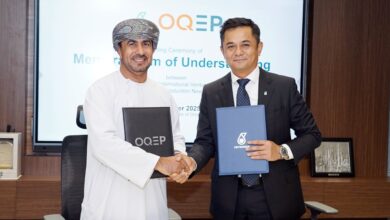Total makes new gas and condensates discovery in the North Sea
Total and its partners have made an encouraging discovery with the Isabella 30/12d-11 well on the license P1820, located in the Central North Sea offshore UK, about 40 km south of the Elgin-Franklin Field and 170 km east of Aberdeen.
The well was drilled in a water depth of about 80 m and encountered 64 m net pay of lean gas and condensate and high-quality light oil, in Upper Jurassic and Triassic sandstone reservoirs. The analysis of the data and results are ongoing to assess the discovered resources and to determine the appraisal program required to confirm commerciality.
“The initial results at Isabella are encouraging,” Kevin McLachlan, Senior Vice President Exploration at Total, said. This demonstrates that our exploration strategy in the North Sea to explore for value adding prospects nearby to our infrastructure is working.”
The P1820 license is operated by Total with a 30% working interest, alongside Neptune Energy (50%), Ithaca Energy (10%) and the wholly owned subsidiary of Edison, Euroil Exploration (10%).




